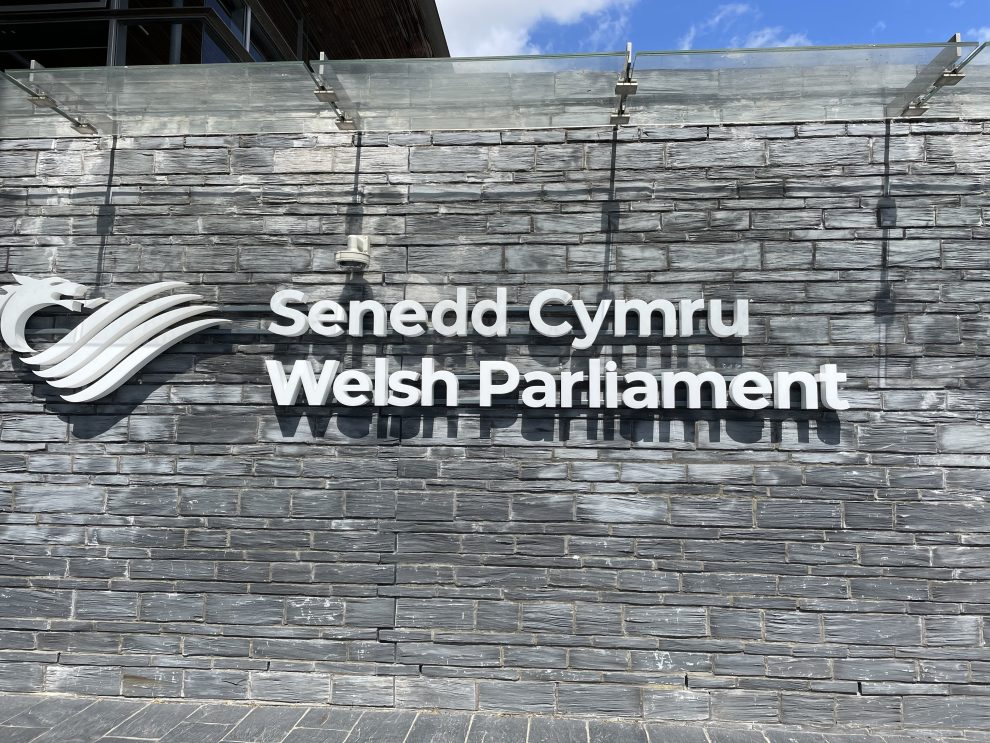Politics
Universal Credit now seven years late

THE ROLLOUT of Universal Credit has been delayed again to 2024.
Over seven years after it was originally supposed to be implemented in full and over a decade after it was first piloted, the scheme has lurched from crisis to crisis in its troubled history.
Universal Credit merges six existing benefits, including housing benefit and child tax credits, into one monthly sum.
The government’s stated aim is to simplify the welfare system, both to help claimants, cut fraud, and encourage work. However, its ultimate effect has been to slash welfare payments to the most vulnerable and plunge claimants into debt as they wait for their first payment of the new benefit.
The fresh delay, to September 2024, was uncovered in an upcoming BBC documentary about the government’s contentious welfare reform. It will add an estimated £500m to the Universal Credit programme, which is already billions over budget.
The delay has arisen because fewer people than expected had signed up to the new system, according to a new BBC documentary, Universal Credit: Inside the Welfare State.
In an excerpt released by the BBC, Neil Couling, the DWP’s director-general for Universal Credit said, in August last year: “We’ve had a lot of anecdotal evidence of people being scared to come to Universal Credit.
“It’s a potentially serious issue for us, in terms of completing the project by December 2023, but I’m urging people not to panic,” he said.
Mr Coulting continues in a subsequent meeting to say: “Three, six or nine months, it doesn’t matter – the headline will be: ‘Delay, disaster’.
“I would say, ‘Go safe, put the claimants first, and I’ll take the beating.'”
This week, the DWP admitted the delay was necessary because the number of people who had moved on to UC was lower than official estimates.
The BBC documentary shows the DWP acknowledging that the reason for the lower-than-expected uptake was the fear that new Universal Credit claimants would lose out.
Gross and ongoing delays in making benefit awards on the new system have plunged people into debt recouped from their benefits due to the waiting period for its first payment imposed by the UK Government.
Universal credit was phased in during 2013.
The benefit was first due for full rollout by April 2017. However, transferring claimants to the new system has been plagued by a series of technical delays. Those delays include a fiasco over IT infrastructure and the failure of the system to account for varying incomes for the self-employed and those employed on casual or zero-hour contracts.
Last week, the UK Government lost a major case on the benefit’s rollout.
In a decision handed down in the Court of Appeal by the Master of the Rolls, Lord Justice Singh, the court ruled transitional provisions relating to the treatment of disabled persons were discriminatory. It found that a severely disabled person who moved from an area where UC had not been rolled out to an area in which it had would be treated less favourably than a person who did not move. In a second case, the court quashed provisions meaning those who migrated ‘naturally’ from Severe Disability Premium to Universal Credit less favourably than those who made the transition under the managed migration scheme.
Last year, former DWP Secretary Amber Rudd said that payment delays of Universal Credit were ‘the main issue’ leading to dependence on foodbanks.
The delay’s announcement follows the publication of a report by the Resolution Foundation
The report notes that the final – and most challenging – phase of the roll-out, involving the transfer of existing benefit and tax credit claimants onto UC, is due to start later this year.
The Foundation states that a marginal average increase of a whacking £1 a week for some claimants ‘masks sizeable groups of families that lose out by large sums, and significant geographical variation across the UK. Thanks to factors such as local rent and earnings levels, and the characteristics of local populations, some parts of the country will be left significantly worse off as the switch to UC goes ahead’.
In areas with a relatively high proportion of single parents, out-of-work single people and disabled people, all of whom fare badly under UC, claimants lose out. Also, while Universal Credit favours working families with high rents, it hits those in areas with below-average rent levels.
The Foundation adds that policymakers in Whitehall, and across the UK, need to consider the impact of Universal Credit at a local level. At exactly the time that policy debates are rightly focusing on what can be done to close economic gaps between parts of the UK, this major welfare reform will be rolled out with very different impacts on those places.
Laura Gardiner, Research Director at the Resolution Foundation, said: “Welcome recent reforms mean that Universal Credit is now set to be marginally more generous than the benefits it is replacing. But this average hides a complex mix of winners and losers, with families in some areas of the UK faring particularly badly.
“As well as making reforms at a national level – such as helping families to overcome the first payment hurdle and offering more flexibility for those with childcare – policymakers across the country need to better understand the effect Universal Credit will have in different places. That understanding should be central to policy debates that are rightly focusing on what can be done to close economic gaps between parts of the UK.”
Welfare minister Will Quince said: “Universal Credit is the biggest change to the welfare system in a generation, bringing together six overlapping benefits into one monthly payment and offering support to some of the most vulnerable people in society.
“It is right that we revisit our forecasts and plan, and re-plan accordingly – ensuring that the process is working well for people on benefits.
“Claimants will not lose money due to this forecasting change.”
Business
Bluestone National Park Resort payments to county to end

A CALL to end a 20-year legal agreement for financial contributions associated with the creation of Pembrokeshire’s Bluestone National Park Resort has been backed by both the county council and the national park.
In related submitted applications to both Pembrokeshire Coast National Park and Pembrokeshire County Council, Bluestone Resorts Ltd asked to end a 2004 Section 106 legal agreement, used to pay towards various projects including enhancements to works including footpaths and bridges.
Bluestone has paid nearly £320,000 to date, and offered two further one-off payments to complete the agreement, reports for the two authorities have said.
Works have been predominantly in the area surrounding Bluestone, but include projects as far afield as Nevern, Solva, and Haverfordwest.
A supporting statement says that, since the agreement was made back in 2004, Bluestone has paid nearly £280,000, with the offer of a final fee of £113,000 being paid, spread over 2023, 2024, and 2025.
A report by national park officers, ahead of the Pembrokeshire Coast National Park Development Management Committee meeting of April 24, where it was recommended for approval, said: “Having considered the information submitted, officers consider that provided the two final payments [the 2023 having been made] are received the legal agreement has served its purpose and can be discharged.
“In order to ensure the two final payments are made, a modification to the Section 106 legal agreement is supported. This decision is supported by Pembrokeshire County Council, who have received a concurrent application which is also recommended by officers for modification.”
The report said the £280,000 figure presented by Bluestone actually amounted to £318,703.87, taking into account a 2023 payment of £38,891.73.
It concluded: “The authority is satisfied that subject to two further payments of £38,000 to be made in August 2024 and August 2025, the obligation no longer serves a planning purpose and can be discharged and as such the obligation should be modified accordingly.”
At the April 23 meeting of the county council’s planning committee, members backed the application by 11 votes to two, following a recommendation for approval by Cllr Brian Hall.
The following day, the related application came before national park planners, with three members leaving the meeting as they had declared related interests in the item.
Cllr Rhys Jordan, who had also been present at the previous day’s meeting, moved approval: “The economic benefit of this facility is huge to Pembrokeshire; whilst these contributions may come to an end, the contribution to the county is huge.
“Bluestone has been at the forefront of all things hospitality, and everything they do is with the environment in mind.”
That application was unanimously approved by members present.
News
Too many children in Wales living in poverty – Lib Dems want action

THIS week in the Senedd, the Welsh Liberal Democrats renewed their demands for the implementation of child poverty targets.
According to a report from the Bevan foundation, 29% of children living in Wales are currently experiencing poverty (an estimated 190,000 children).
The same report highlighted that the largest percentage of children living in poverty are from working households or in couple households.
The Welsh Lib Dems are now renewing calls for the Welsh Government to create a set of targets for reducing child poverty, which the party argues will allow for more accountability.
The party has previously called for the implementation of targets, citing recommendations from the Calling Time on Child Poverty Report published in November last year.
Commenting, the Leader of the Welsh Liberal Democrats Jane Dodds MS said: “The latest statistics on childhood poverty in Wales paints a very distressing image of families across the country struggling to make ends meet.
Over the course of the last six years, the proportion of children in poverty has skyrocketed. Fuelled by worsening economic conditions and a complete lack of action from both governments in Westminster and Cardiff Bay.
We cannot act complacent about these figures nor accept the clear lack of progress in fighting child poverty, behind each statistic is a child that the state has failed.
It remains painfully clear that the Welsh Government is failing to make any meaningful progress in this fight, which is why they must follow through with the implementation of clear set targets that will allow for further accountability.
We as a party have continuously called for the creation of these targets and we will not be silenced. For the sake of future generations we urge the Welsh Government to listen.”
Education
Conservative calls for academies and free schools rejected by Senedd

THE SENEDD has rejected calls to introduce free schools and academies after a report found major challenges in Wales’ education system.
Tom Giffard led a Conservative debate on educational attainment, warning that Wales is consistently at the bottom of UK-wide league tables.
The party’s new shadow education secretary pointed to an Institute for Fiscal Studies (IFS) report on education in Wales which found low outcomes and high levels of inequality.
Mr Giffard told the Senedd the IFS report highlights the pitfalls of the Welsh Government putting all its eggs in the basket of a skills-based approach.
Criticising a failure to measure skills inequalities and pupil progress, he stressed that Wales’ lower performance is due to policy and approach rather than funding or the pandemic.
He said: “It seems the Welsh Government relies on Pisa results to tell the story but then, when those same results are all too disappointing, they are dismissed in equal measure.”
Mr Giffard, who previously worked in a primary school, said declines in Pisa results can be observed in almost every country that has adopted a skills-based approach.
Raising concerns about disappointing Pisa results, the South Wales West MS pointed out that Wales saw the lowest scores in the UK for every subject.
Heledd Fychan, Plaid Cymru’s shadow education secretary, warned that Wales’ schools are understaffed and facing difficult decisions due to budgets being at breaking point.
She criticised implementation of the Welsh Government’s additional learning needs (ALN) reforms, saying schools cannot realise the aims without the budget to bring them to life.
Ms Fychan said Plaid Cymru agreed with much of the Tory motion but her party would not support calls for free schools and academies.
Sam Rowlands described the IFS report as damning, warning that the Welsh Government’s education reforms have been disastrous and have widened inequality.
The Tory MS claimed the reforms are systematically holding back disadvantaged children, saying: “The most remarkable fact is that the performance of disadvantaged children in England is either above or similar to the average for all children in Wales.”
Mr Rowlands added: “The poorest in England’s schools are doing the same or better than the Welsh average, thanks to ambition, the academies and free schools.”
Samuel Kurtz, a fellow Tory, said free schools and academies have driven up standards in England as he argued a Wales roll-out provides an opportunity to improve outcomes.
James Evans, the Conservative MS for Brecon and Radnorshire, highlighted the party’s pledge to get 5,000 more teachers into Wales’ classrooms.
Buffy Williams, the newly elected chair of the Senedd’s education committee, said Wales is undergoing a profound transformation propelled by ALN and curriculum reforms.
The Labour MS for Rhondda stressed the importance of listening to teachers and allowing ample time for the reforms to take root in classrooms across Wales.
Altaf Hussain recounted a conversation he had this week with a headteacher at one of the largest schools in his South Wales West region.
The Conservative said: “The major improvements they have been delivering to attainment and addressing behavioural issues are all at risk because of cuts to funding.
“Vital work undertaken to improve the lives of young people with additional needs could be halted because they cannot afford to continue employing the support workers.”
Lynne Neagle recognised the scale and seriousness of work still ahead to improve Wales’ education system, stressing: “I am not, in any way, complacent about that task.”
Wales’ newly appointed education secretary, who takes over from Jeremy Miles, said sustained improvement in attainment will be among her top priorities.
She told the chamber: “My early focus has been to listen closely to schools and where it is clear that schools seek more scaffolding.”
Ms Neagle said the Welsh Government will work with trade unions and employers to reduce workload and eliminate unnecessary red tape.
The Conservative motion was voted down, 14-35, following the debate on April 24. The motion as amended by the Welsh Government was agreed, 26-23.
-

 News3 days ago
News3 days agoPolice and air ambulances at ‘serious incident’ at West Wales school
-

 News7 days ago
News7 days ago20mph U-turn: Some roads will return to 30mph following public outcry
-

 Community7 days ago
Community7 days agoMiracle pup finds her forever home after heart-wrenching journey
-

 Crime3 days ago
Crime3 days agoPembrokeshire pensioner accused of 17 sexual offences against children
-

 Crime2 days ago
Crime2 days agoAll three school stabbing victims discharged from hospital, police confirm
-

 Community4 days ago
Community4 days agoCounty Hall to offer space for community banking
-

 Business11 hours ago
Business11 hours agoLargest Welsh port appoints communications and marketing director
-

 Crime5 days ago
Crime5 days agoBrian Davis: Wanted on suspicion of commercial burglary
























